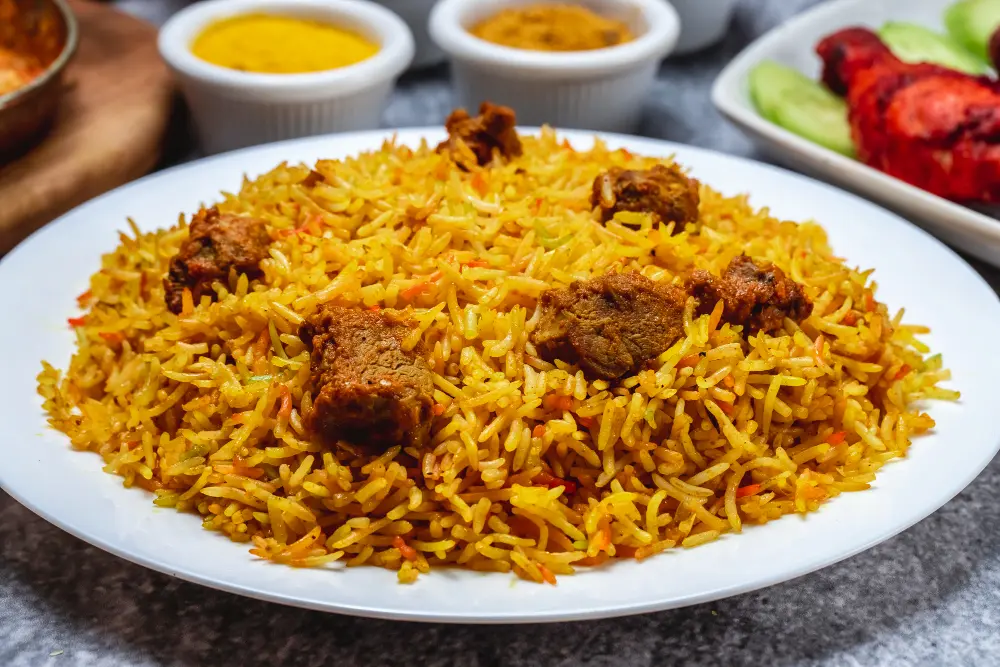Customization and Adaptation: Tailoring Industrial Kitchen Equipment to Nigerian Cuisine

Nigerian cuisine is a vibrant tapestry of flavors, textures, and traditions, reflecting the country’s rich cultural heritage and diverse culinary influences. From the spicy heat of jollof rice to the savory delights of suya, Nigerian dishes tantalize the taste buds and evoke a sense of home and belonging. However, behind every delicious meal lies the beating heart of an industrial kitchen, where skilled chefs and dedicated cooks bring these culinary creations to life. In this article, we explore the importance of customization and adaptation in tailoring industrial kitchen equipment to meet the unique needs of Nigerian cuisine.
Understanding Nigerian Cuisine
Nigerian cuisine is as diverse as the country itself, encompassing a wide range of regional specialties and traditional dishes. From the coastal flavors of seafood-rich soups in the south to the hearty stews and fufu in the north, Nigerian cuisine is characterized by its bold flavors, generous use of spices, and emphasis on fresh, locally sourced ingredients. Cooking techniques vary from region to region but often involve grilling, frying, stewing, and steaming, each method designed to enhance the natural flavors of the ingredients.
The Role of Industrial Kitchen Equipment
Industrial kitchen equipment forms the backbone of any professional kitchen, providing chefs and cooks with the tools they need to prepare, cook, and serve delicious meals efficiently and consistently. However, when it comes to Nigerian cuisine, traditional cooking methods and unique ingredients present specific challenges and considerations that must be addressed to ensure optimal performance and results.
Customization vs. Adaptation
Customization involves tailoring equipment to meet specific requirements or preferences, such as modifying a stove to accommodate larger pots or adding specialized attachments to a mixer for pounding yam. Adaptation, on the other hand, refers to adjusting cooking techniques or recipes to suit the capabilities of existing equipment, such as using a griddle instead of a traditional charcoal grill for making suya.
Examples of Customization and Adaptation
Frying Equipment: Nigerian cuisine features a wide variety of fried dishes, from plantain chips to akara (bean cakes). Industrial fryers can be customized with adjustable temperature controls and specialized baskets to accommodate different types of ingredients and cooking styles.
Grilling Equipment: Grilled meats and fish are staples of Nigerian cuisine, often prepared over open flames or charcoal grills for that distinct smoky flavor. Industrial grills can be adapted with adjustable grates and temperature controls to mimic traditional grilling techniques while ensuring consistent results.
Mixing and Grinding Equipment: Nigerian dishes often require the grinding of spices and the mixing of ingredients to achieve the desired flavor and texture. Industrial mixers and grinders can be customized with specialized attachments and variable speed settings to handle a wide range of ingredients and recipes.
Oven Equipment: Baking is an essential aspect of Nigerian cuisine, with dishes like meat pies, chin chin, and puff puff featuring prominently in local cuisine. Industrial ovens can be customized with multiple racks, adjustable heat settings, and steam injection capabilities to produce perfectly baked goods every time.
Benefits of Customization and Adaptation
Enhanced Efficiency: Customizing equipment to suit the specific needs of Nigerian cuisine can streamline workflow and improve efficiency in the kitchen, reducing cooking times and minimizing waste.
Improved Quality: By adapting cooking techniques and recipes to work with existing equipment, chefs and cooks can maintain the integrity of traditional dishes while ensuring consistent quality and flavor.
Cost Savings: Investing in customized equipment tailored to the requirements of Nigerian cuisine can lead to long-term cost savings by reducing the need for repairs and replacements and minimizing energy consumption.
Challenges and Considerations
Availability of Equipment: Finding industrial kitchen equipment that is suitable for Nigerian cuisine may be challenging, particularly for specialized dishes and cooking techniques.
Training and Education: Proper training and education are essential for chefs and cooks to effectively utilize customized equipment and adapt cooking techniques to achieve the desired results.
Maintenance and Support: Regular maintenance and ongoing support are crucial for ensuring the continued performance and reliability of customized equipment in the kitchen.
Conclusion
In conclusion, customization and adaptation play a vital role in tailoring industrial kitchen equipment to meet the unique requirements of Nigerian cuisine. By customizing equipment to suit specific cooking techniques and ingredients and adapting recipes to work with existing tools, chefs and cooks can produce delicious, authentic dishes that celebrate the rich flavors and culinary heritage of Nigeria. With careful planning, training, and support, customization and adaptation can transform industrial kitchens into centers of culinary excellence, where tradition meets innovation in every dish served.